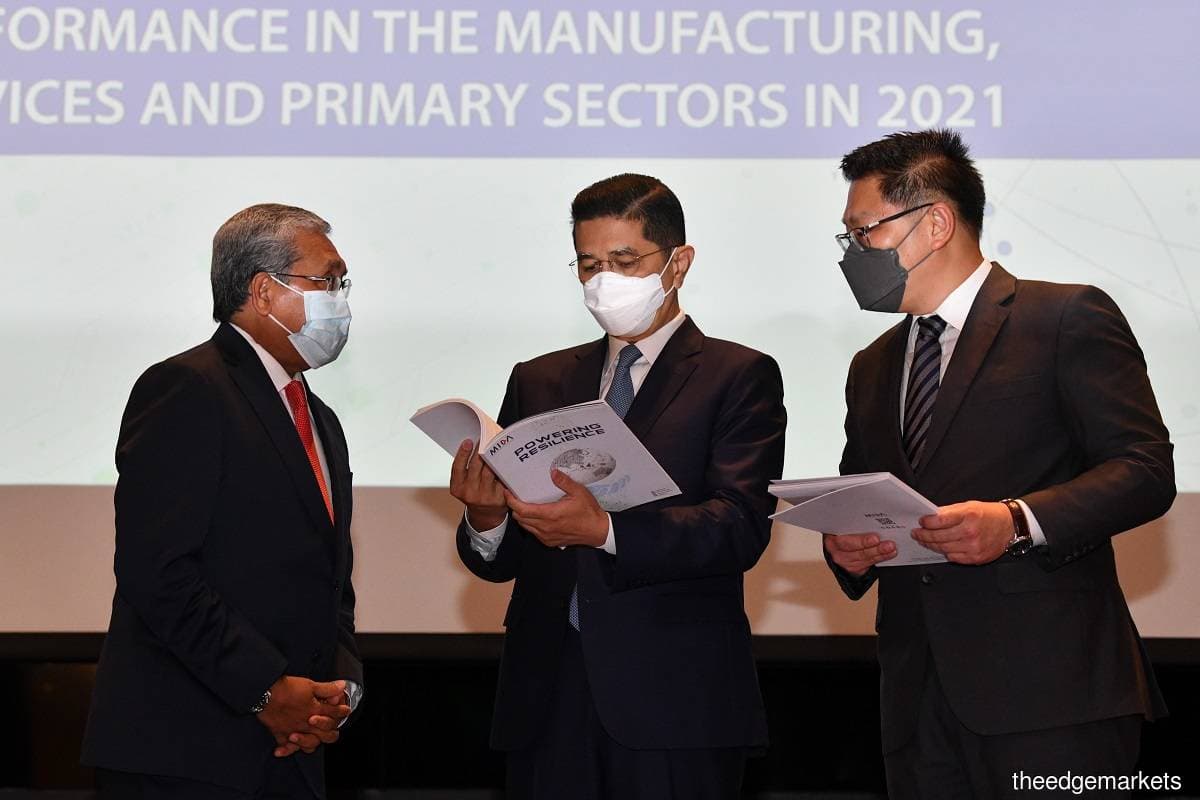
KUALA LUMPUR (March 8): Malaysia attracted a record amount of approved investments worth RM306.5 billion in the manufacturing, services and primary sectors in 2021, driven by higher foreign direct investment (FDI) and increased projects in the manufacturing and the electrical and electronics (E&E) sectors, according to the Malaysian Investment Development Authority (MIDA) at its annual media conference on Tuesday (March 8).
In a statement, MIDA said that Malaysia’s FDI of RM208.6 billion accounted for 68.1% of total approved investments, with the remaining 31.9% coming from domestic direct investment (DDI) at RM97.9 billion.
Year-on-year, Malaysia’s FDI was significantly higher by 224.9% from RM64.2 billion in 2020, however, DDI declined marginally by 5.13% from RM103.2 billion the year before.
“The Netherlands (RM78 billion), Singapore (RM47.3 billion), the People’s Republic of China (RM31.3 billion), Austria (RM18.9 billion) and Japan (RM9.9 billion) accounted for 88.9% of total FDI approved in the manufacturing, services and primary sectors.
“Pulau Pinang (RM83.5 billion) recorded the highest investments approved last year, followed by Kedah (RM68.3 billion), Kuala Lumpur (RM37.7 billion), Selangor (RM28.8 billion) and Sarawak (RM25.7 billion).
“These five states contributed 79.6% of total approved investments in 2021,” the statement read.
Officiating the event was Senior Minister and International Trade and Industry Minister Datuk Seri Mohamed Azmin Ali, who said the record-breaking approved investments for the manufacturing, services and primary sectors were a 83.1% jump from 2020's figure.
Azmin added that Malaysia’s RM97.9 billion DDI in 2021 is a signal that local industry players had grown in terms of capabilities and business capacity to be competitive on the global stage.
“Moving forward, I am delighted to share that MIDA has already secured 352 projects in the pipeline with proposed investments of RM39.2 billion for the manufacturing and services sectors.
“These projects will create more than 19,000 new job opportunities for the rakyat,” Azmin said.
Manufacturing sector continues to be mainstay with E&E topping approved investments
Meanwhile, the manufacturing sector led total investments approved in 2021 by recording RM195.1 billion, followed by the services sector and the primary sector at RM94.1 billion and RM17.3 billion respectively.
The manufacturing sector reported a leap in approved investments by 113.7% from RM91.3 billion in 2020, while the services and primary sectors saw improvements of 34.4% and 183.6% from RM70 billion and RM6.1 billion respectively.
Notably, the E&E industry contributed the bulk of the FDI as well as total approved investments within the manufacturing sector by recording RM148 billion for 94 approved projects.
Chief among the E&E industry’s RM148 billion in total approved investments included RM42.2 billion from Risen Solar for the design development and manufacturing of solar modules and solar cells, followed by Intel Electronics’ RM30 billion to produce wafer fabrication and stacked dies in Pulau Pinang, AT&S’ RM8.5 billion to establish design development and manufacturing of integrated circuit substrates in the Kulim Hi-Tech Park, and Infineon Technologies’ RM3.25 billion in Melaka.
MIDA, the country's investment promotion and development agency, said that Malaysia secured 75 capital-intensive projects valued at RM100 million and above in 2021, which could spur the growth of new advanced manufacturing technologies and produce a highly-skilled workforce.
Meanwhile, the services sector’s 34.4% improvement in 2021 was driven by sub-sectors such as real estate (RM28.8 billion), global establishments (RM19.7 billion), financial services (RM12 billion), utilities (RM9.6 billion), and information and communications (RM8.2 billion).
The bulk of the primary sector’s approved investments were led by the mining sub-sector’s RM17.1 billion or 98.7% amid higher crude oil and natural gas prices, while the plantation and commodities and agriculture sub-sectors brought in RM211.4 million and RM20.5 million respectively.